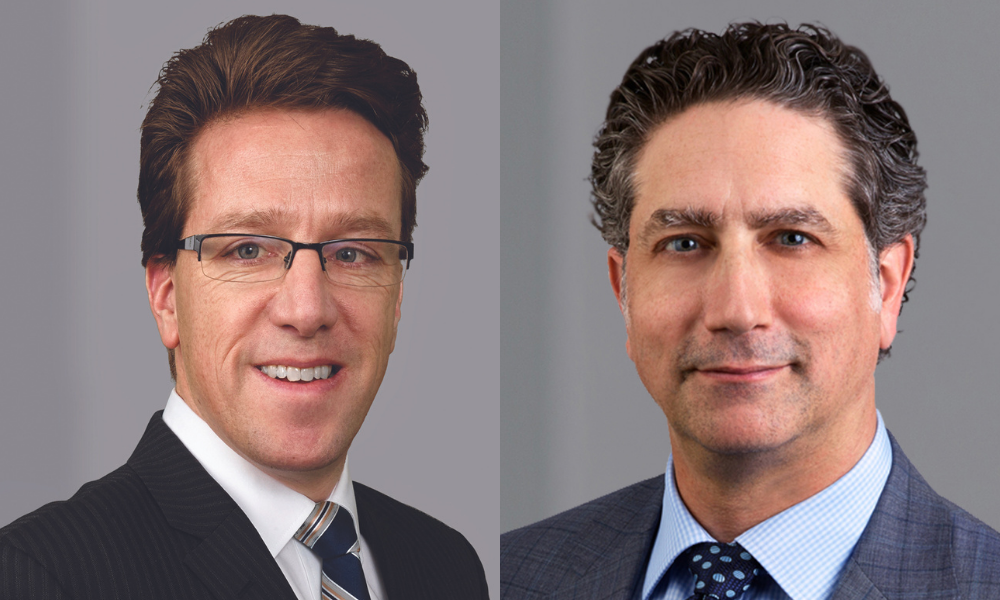Veteran competition law litigator is new chair of firm’s competition and foreign investment group

The new chair of the national competition and foreign investment group at Cassels Brock & Blackwell LLP says he’s seen more merger-related litigation in the past two years than in any other period in the last 20.
Davit Akman, who joined the firm from Borden Ladner Gervais at the end of 2021, says that lately there have been an “unusually high number of merger challenges,” from the federal Competition Bureau as the enforcer takes a more activist stand.
A recent example is the Competition Bureau’s filing a notice of application in November against GFL Environmental Inc. challenging the company’s acquisition of Terrapure Environmental Inc. The bureau alleges the acquisition has likely substantially lessened competition in the markets for the collection and processing of industrial waste across Western Canada, with the likely result of increased prices and reduced service quality.
The bureau seeks an order requiring GFL to sell any assets necessary to remedy the alleged likely substantial lessening of competition resulting from the acquisition and requiring GFL to provide the Commissioner with at least 30 days advance written notice of any future proposed merger.
Akman says that there are indications, especially from comments made in a speech to the Canadian Bar Association in October, that current Commissioner of Competition Matthew Boswell feels that the legal tests for preventing anti-competitive mergers are overly strict and impractical and, more generally, that a comprehensive review and “modernization” of the Competition Act is required.
The Commissioner, however, does not have the unilateral ability to amend the Competition Act, Akman notes. The bureau can advise and take a position, but ultimately, it is only Parliament that has the power to make amendments to the act.
Akman says he puts himself in the “incrementalist camp,” and doesn’t feel that dramatic changes to the Competition Act are required to foster competition in the Canadian economy. “I’m not convinced that the benefits of expanding the mandate of Canadian competition law would outweigh the costs, which I believe would be significant.”
However, it is not just a more activist competition bureau driving more litigation these days. Akman points to “an increased willingness on the part of some merging parties to push back when they feel that the bureau is being unreasonable, or when they feel that they are on solid ground from a competitive effects perspective, to hold their ground.”
He adds these parties are more willing to say to the bureau, “bring on your application, and we’ll see you in court.” In the past, these parties may have displayed a greater willingness to avoid risk and placate the bureau with a compromise such as divestitures or other remedies.
Akman has advised domestic and international firms on all aspects of Canadian competition and foreign investment review law, including mergers and acquisitions, cartel defence and reviewable matters. Civil and criminal competition litigation, including applications before the Competition Tribunal and class actions alleging anti-competitive conduct, are also a significant part of his practice.
“I’m a bit of a rare breed in the sense that I am both a competition solicitor and a competition litigator,” Akman says.
Akman has appeared before all levels of court in Canada, including the Supreme Court of Canada, as well as before the Competition Tribunal on numerous occasions. He was counsel before the Tribunal in the seminal abuse of dominance case (Canada Pipe) and the first price maintenance case (Visa and MasterCard). He also represented the Canadian Chamber of Commerce before the Supreme Court of Canada in Sun-Rype Products Ltd v Archer Daniels Midland, one of Canada’s leading competition class action cases.
More recently, he advised Parrish & Heimbecker, Limited on competition and regulatory matters regarding its acquisition of Louis Dreyfus Company’s Canadian grain elevators. He represented P&H in competition litigation before the Competition Tribunal arising from that transaction. It was the first fully contested merger case heard by the Tribunal since 2011.
As well, Akman represented Loblaw Companies Limited and George Weston Limited in connection with the bread price-fixing case. He is also acting for Glenmark Pharmaceuticals Inc., USA and Glenmark Pharmaceuticals Canada Inc. in connection with the Canadian iteration of ongoing generics price-fixing litigation.
Colin Ground, Co-Chair of the business law group at Cassels, says that Akman, with such an impressive background, was what the firm was looking for as it further expands its practice in the areas of mergers and acquisitions and competition law. “Given his relationships and experience, it just further strengthens our network,” he says. “He’s a strong addition to our group, and we think that his arrival at our firm can only expand our opportunities in this area.”
On the deal-making side, Akman says the challenge is how to help buyers and sellers make successful deals. “I can paper a deal to provide my clients with the appropriate contractual protections in the event that the Bureau has concerns or launches a challenge,” he says. “But the reality is that when a client comes to you and spends the time and money to try and get a deal done, yes, they want the contractual protections, but first and foremost, they want to get the deal done.”
Akman adds that what he can offer these clients is “the perspective and experience of a competition lawyer who handles the merger but brings a litigator’s lens from the outset.”
Ground notes that Akman’s views on the future of competition issues in Canada, “particularly the potential for more activism and litigation, demonstrate how the addition of Davit to the team at Cassels even better positions us to handle such matters for our clients, given the importance of protecting their interests.”










